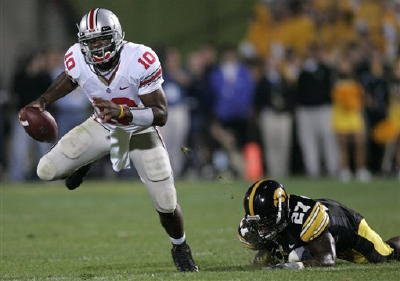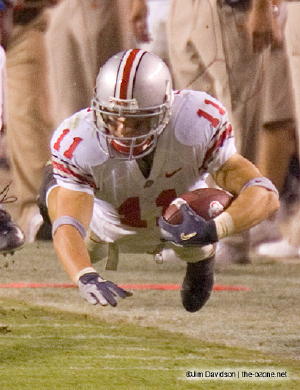In order to make his case that a "conservative hit job" is being perpetrated against him, Bill Clinton has had to get creative with his history, accusing his political opponents on the right of having been critical of his efforts to kill Osama bin Laden back in 1998, to the point of "ridiculing" the poor man. According to Bill, this makes them hypocrites since they now accuse him of having done too little to combat terrorism.
(First, imagine if you can the specter of political opponents actually ridiculing a sitting President. Ugly, isn't it?)
Not only that, it is Republicans who are responsble for Clinton's inability to get the CIA or FBI to follow his orders. This according to the Richard Clarke book incessantly plugged by Clinton as the definitive account of the events at issue. Among other things, Republican 1992 campaign criticism of Clinton's draft dodging and his Vietnam War opposition served to undermine his ability as President to take effective action against terrorists. That's their line. Seriously.
One can only imagine the seamless and efficient working relationship that Bill and Hillary might have had with our men in uniform and our intelligence services in the absence of all that destructive Republican criticism. This was a man who wouldn't even speak to Louis Freeh, his FBI Director, for months on end, and would not grant him a face-to-face meeting. Clarke now says Clinton couldn't fire Freeh, and it's the fault of Republicans. Does this surprise you coming from the great finger-wagger?
The First Lady was widely reported (Gary Aldrich comes to mind for starters) to be contemptuous of all things military as well. I'm sure that the aversion of both Clintons to the military, and their seeming willingness to openly flaunt it, contributed to President Clinton's ineffectiveness in dealing with them. But to now try to lay that problem on the doorstep of the Republicans is sheer gall.
The Clinton's story seems to be "We did so act against terrorism.... but even if we didn't, it's because nobody in the military or intelligence community would listen to us, and that's the fault of our critics." Byron York's NRO piece closes this way:
...the bottom line is that Bill Clinton, the commander-in-chief, could not find the will to order the military into action against al Qaeda, and Bill Clinton, the head of the executive branch, could not find the will to order the CIA and FBI to act. No matter what the former president says on Fox, or anywhere else, that is his legacy in the war on terror.
The thing that jumped out at me from the Fox interview was Clinton's almost desperate defensiveness in the attempt to prop up his fantasy legacy. In a way, I get the desperation. I have no doubt that during his eight years he was in fact unable to get the hidebound, careerist bureaucracy of the intelligence community to act as he might have liked. I believe he saw and understood the threat of Islamic terrorism, but when it came time to lead...when it came time to make difficult decisions from among all bad options...when it came time to act....he didn't. Then, as now, he was more concerned with what people thought of him.
Now comes what must be to Bill Clinton a glaring example of everything that he wasn't. A President who saw and understood the threat, but one who acted in what he was convinced was the best course for the country, without a wet finger in the wind, without a thought as to how it might read in his memoirs. The daily reminder of a President acting on principle and disregarding polls must be disconcerting to Bill Clinton, especially as his legacy suffers by comparison. Sending Sandy Berger into the National Archives to purge certain notes, and stacking the 9/11 commission with Gorelicks and Ben Venistes were both legacy-polishing acts, committed in the same sort of desperation.
It is a tribute to Hillary's political skill that in the last five years she has been able to successfully run away from the "soft on national security" tag that had rightfully been pinned on her husband. And I have said before that I attribute some of her overall seriousness and responsibility on matters relating to terrorism to her having been in some of those White House situation room meetings on people like bin Laden before.
But the original point of this post was to follow up the excellent York piece of yesterday, with one by ABC News' Jake Tapper, which blows holes in Clinton's claim that it was his political opponents who criticized his attempts to kill Osama bin Laden in 1998. There was plenty of "wag-the-dog" talk, but much of it was coming from closer to home. Excerpting...
In the interview Clinton said that during the 1990s conservatives criticized him for "obsessing" over bin Laden and "they ridiculed me for trying" to kill bin Laden.
So let's examine the record... The most aggressive strike the Clinton Administration launched against al Qaeda was in August 1998 when U.S. cruise missiles were sent to six terrorist compund sites in Afghanistan and the El Shifa Pharmaceutical Industries factory in the Sudanese capital of Khartoum where U.S. officials say chemical weapons were being housed.
So...who impugned Clinton's motives?...
..."I think the president did exactly the right thing," said House Speaker Newt Gingrich (R-Ga.) said. "By doing this we're sending the signal there are no sanctuaries for terrorists." Senate Majority Leader Trent Lott (R-Miss.) called the attacks "appropriate and just," and House Majority Leader Richard K. Armey (R-Tex.) said "the American people stand united in the face of terrorism...
...The conservative National Review wrote "Whatever one thinks of Bill Clinton, surely Sandy Berger and Bill Cohen would not take part in any wag-the-dog scenario. Republicans who suggest otherwise--including, to our astonishment and his embarrassment, the usually sober Sen. Dan Coats (R., Ind.)--should be ashamed of themselves. President Clinton should instead be commended for finally responding appropriately to a terrorist attack."
On The McGlaughlin Group, Pat Buchanan said "there was every justification for it. It was a retaliatory strike, it's a pre-emptive strike, it was decided a week ahead of time, unanimously in the Ex Com of the National Security Council. There is not a scintilla of evidence that the president timed this for political reasons, and I think the Republicans who have stood behind the president in these strikes are exactly right."
There were of course exceptions, and they are cited by Tapper, who also quotes Republican leadership coming down on the few who, shall we say...questioned the timing.
But isn't the rhetoric from the Congressional leadership of the opposition party at the time absolutely striking in its difference from what we hear today from Democrats?
UPDATE 9/27:
Related:
Richard Miniter - WSJ - "What Clinton Didn't Do"
Thomas Joscelyn - TWS - "Warning Signs"

